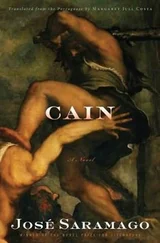“If only it were that easy. Often we don’t know how to choose. We haven’t learned how…”
“Some people can only choose evil, because they’re naturally twisted!”
Cândida winced as if in pain, then said:
“You don’t know what you’re saying. That can only happen when people are mentally ill. We’re talking about people who, according to you, are capable of making a choice. Someone as sick as that wouldn’t be able to!”
“You’re trying to trip me up, but you won’t succeed. All right, let’s talk about healthy people, then. I can choose between good and evil, between good music and bad!”
Cândida raised her hands as if about to launch into a long speech, but immediately lowered them again:
“Let’s forget about music for the moment, because it’s just getting in the way. Tell me, if you can, what is good and what is evil? Where does one end and the other begin?”
“I’ve no idea, there’s no answer to that. What I do know is that I can recognize good and evil when I see them…”
“That depends on your particular point of view…”
“Of course it does. I can’t make judgments using other people’s ideas!”
“There’s the sticking point! You’re forgetting that other people have their own ideas about good and evil, ideas that might be better than yours…”
“If everyone thought like you, we would never get anywhere. We need rules, we need laws!”
“But who makes them? And when? And why?”
Cândida paused for a moment before adding, with an innocently mischievous look:
“So when you think, are you using your own ideas or are you using rules and laws written by someone else?”
Having no answer to these questions, Amélia turned her back on her sister, saying:
“Oh, I should know by now that there’s no talking to you!”
Isaura and Adriana smiled. This argument was merely the latest of many they had heard between those two poor old ladies, entirely restricted now to the domestic sphere, a long way from the days when they had broader, livelier interests, when their economic state allowed for such interests. There they were, lined and bent, gray and increasingly frail, their flickering fire throwing out its final sparks, resisting the accumulating ashes. Isaura and Adriana looked at each other and smiled again. In comparison to that crumbling old age, they felt young and vibrant, like a taut piano string.
Then they had supper. Four women sitting around the table. The steaming plates, the white tablecloth, the ceremonial of the meal. On this side — or perhaps on the other side too — of the inevitable noises lay a dense, painful silence, the inquisitorial silence of the past observing us and the ironic silence of the future that awaits us.
“You don’t look well, Anselmo!”
Anselmo tried to smile, an effort that really merited a better result. He was too caught up in his own thoughts to make proper use of the facial muscles involved in smiling. The face he made would have been comical had it not been for the evident pain in his eyes, which his mouth’s muscular maneuvers failed to reach.
They were in the kitchen having lunch. On the table, Anselmo’s watch showed him how much time remained of his lunch break. Its tiny tick-tock insinuated itself into the silence that followed Rosália’s exclamation.
“Whatever’s wrong?” she asked.
“Oh, nothing, a silly, piddling little problem.”
Alone with his wife, Anselmo spoke somewhat more colloquially, and it never occurred to him that she might feel slighted by this. And, it must be said, Rosália did not.
“What ‘piddling little problem’ is that?”
“They’ve refused to give me an advance on my wages. And it’s still ten days until the end of the month.”
“I know, and I haven’t got any money either. Today at the grocer’s I had to pretend I’d forgotten my purse.”
Anselmo slammed down his fork. His wife’s words came like a slap in the face.
“Where on earth does the money go, that’s what I’d like to know!” he said.
“I hope you don’t think I waste it. My mother taught me to be frugal and I doubt there are many women more frugal than me.”
“No one is saying you’re not frugal, but we really ought to be able to manage better with two wages coming in.”
“What Claudinha earns is barely enough for her to live on. And I’m not having a daughter of mine looking badly dressed.”
“That’s not what you say when she’s around.”
“Well, I don’t want her getting ideas. I know what I’m doing.”
Anselmo was finishing his last mouthful of food. He changed position, loosened his belt and stretched out his legs. The gray light of a rainy day sifted and sieved the shadows filling the covered balcony. Rosália, head bowed, continued to eat. At the other end of the table, Maria Cláudia’s empty plate still waited.
Seeing Anselmo sitting there grave-faced, eyes fixed somewhere off in the distance, no one would have dared to suggest that he was not absorbed in thought. Beneath his shiny balding pate, slightly flushed from the digestive process, his brain was trying to squeeze out a few ideas, all of them with the same objective: how to get enough money to carry them through to the end of the month. However — possibly because the digestive process was getting in the way — Anselmo’s brain signally failed to produce any useful ideas at all.
“Thinking will get you nowhere. We’ll work something out,” said Rosália encouragingly.
Her husband, who had been waiting for her to say those words in order to stop thinking about the whole discomfiting subject, eyed her angrily:
“Who’s going to do the thinking if I don’t?”
“But it’s not good for you to go racking your brain just after lunch.”
Anselmo made a grand despairing gesture and shook his head, like someone submitting to implacable Fate:
“You women have no idea what goes on inside a man’s head!”
If Rosália had given him the necessary prompt, he would have plunged into a long soliloquy, setting out yet again his definitive ideas about the condition of men in general and office employees in particular. He did not have many ideas, but the few he had were “definitive.” And his main idea, of which the others were mere satellites and consequences, was his avowed belief that money (to use his words) was the mainspring of life and that one could do whatever one had to in order to earn it, as long, that is, as one’s dignity remained intact. This reservation was very important to Anselmo, who was a fervent believer in the importance of preserving one’s dignity.
Rosália did not, however, give him the necessary prompt, not because she was fed up with hearing her husband’s oft-repeated theories, but because she was entirely absorbed in studying his face, a face which, in profile, as it was now, resembled that of a Roman emperor. Anselmo’s slight irritation at not being given the opportunity to hold forth was soothed by the respectful attention being bestowed on him. He considered his wife to be far beneath him, but feeling thus adored flattered him, so much so that when he saw the respect and awe in Rosália’s eyes, he gladly renounced the pleasure of being able to demonstrate his superiority through words.
A sigh was heard: Rosália had achieved ecstasy, and the lyrical interlude was over. She descended from the lofty regions of adoration to more prosaic, earthly matters.
“Guess who’s taken a lodger.”
For Anselmo, the performance had not yet finished. He pretended surprise and asked:
“What?”
“I said, guess who’s taken a lodger.”
With the benevolent smile of an Olympian being who has agreed to descend to the plains, Anselmo asked:
Читать дальше












